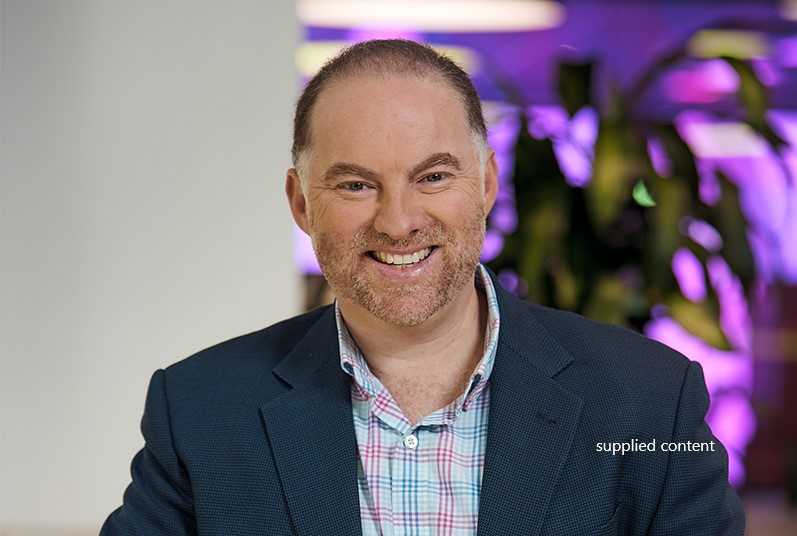What successful financial management looks like
One of the most critical relationships that exists across all business sectors is the one between business owner and accountant.
One of the most critical relationships that exists across all business sectors is the one between business owner and Accountant. Lisa Martin, Executive Director of transformational accounting advisory firm GoFi8ure explains why it’s a relationship deserving constant nurturing and scrutiny.
If you’re a smart business owner you will have your Accountant on speed dial, says GoFi8ure’s Lisa Martin.
“He or she is really like your financial coach,” she explains. “So, if you want to bounce ideas around, then you should
be able to talk to your Accountant quite candidly.
“It shouldn’t be about emailing a question and never hearing from them.” The same rule applies for your Lawyer, or HR Advisor, she says. “There are specific issues that require you to tap into that expertise. You can’t just wing it.”
And if you’re worried about being charged for consulting time, perhaps it’s time to negotiate a fixed fee, she suggests.
“You really need to build a relationship where you’re not afraid to ask questions.”
So, let’s examine what’s keeping New Zealand’s business owners awake at night?
According to Lisa it’s resources (that includes people), capacity and capability, IP and IT, the brand, the business’s reputation, resilience, mental health, and the big one – money.
In the current business environment, still reeling from covid’s impact, many of these concerns are heightened, and business owners must simply face facts.
“For example, if clients are asking for more and more from your business, be up front and inform them of your capacity constraints. It’s time for some honesty,” says Lisa.
WISH-LIST FOR ACCOUNTANTS
On the subject of honesty, Lisa has a wish-list of tax-related subjects that she believes more Accountants should share with clients. For example, there needs to be more conversations around the difference between cash and profit, what a profit and loss statement actually says, and what balance sheets are used for.
“Also, the difference between position and performance; the difference between what you own and what you owe.
“Accountants must talk to clients about financial literacy and financial discipline, about the best tax structure for them and what the top tax rate actually means [to their financial position].
“There needs to be a discussion about how dividends and imputation credits actually work,” adds Lisa. “Remember, everyone’s situation is unique. You may talk to a friend who appears to be paying less tax than you, but their circumstances will be different. And remember, the tax rules are updated every year.”
A coffee or a meal from your local café might have been tax deductible a couple of years ago, but rules and interpretations from the IR constantly change, she says. “So use your common sense. Never push your luck over tax, or anything else to do with your business’s finances.”
Lisa wishes Accountants would also explain what the shareholders current account means to business owner clients. “For example, drawings don’t represent free money. At some point you’ll have to pay tax on it.
“They also must explain that GST is a direct third-party tax. We’re collecting it on behalf of the government, while income tax is a tax based on your earnings. The two are very separate on the balance sheet.”
You can’t claim the full expense of an asset all at once either, explains Lisa.
“You register an asset in your accounting and depreciate that asset over its useful life at an IR-approved depreciation rate. So, just like a vehicle, it could be diminishing in value by 30 percent during its useful life.”
The true test of an Accountant is to clearly explain this to clients.
WHY BUSINESSES FAIL
To succeed in business financial management you must first recognise why businesses fail.
Lisa is strong on this. “It can be a direct result of a lack of planning, which broadly ties in with having little, or no, focus or strategy. You haven’t looked at the bigger picture of what’s going on in your market, and what your competitors do better than you.
“If you have strategic drivers in your business model you can be just as successful as your competitors.”
Your strategy needs to be aligned to a vision, Lisa emphasises. “What if your business doesn’t have one, or perhaps you do but your staff don’t understand it?”
Know where you are, where you are going, how you’ll get there, and what people you’ll need on board, she says. “And remember, it’s better to learn from other peoples’ mistakes, than just learn from your own.
“Why not pay for some additional expertise to help get your ideas implemented or business off the ground?”
Having a strategy or idea is no use either if you’re not prepared to run with it, suggests Lisa. And then if it doesn’t work at first, be prepared to pivot or persevere.
If, perhaps, you’re looking to take a product global, then seek advice from someone with product development experience, and ideally in the particular market you’re targeting.
Being successful in business is also about being agile and setting aside your ego.
“We all need help, and reminding that we don’t know everything,” says Lisa. “To be a true leader, accept that there are others who know how to implement your business strategy better than you.”
Avoiding failure and achieving success, particularly in developing a business around products, also relies on investing in smart marketing and promotion, in talented employees, and sorting your distribution channel.
PIVOT, PATCH OR PERSEVERE
The global pandemic has forced many businesses to either ‘pivot, patch or persevere’, explains Lisa.
“Persevering with continuous improvement and transformation may be painful and suck cash, but at the end of it your business can be thriving, not just surviving.”
When you’re ready to take a deeper dive for the health of your business financials, get some advice on how to perform a competitive SWOT analysis, both internally and on the external market. SWOT stands for Strengths, Weaknesses, Opportunities and Threats.
There is one final weapon in your arsenal for succeeding in financial management too – and that is data. “Whoever harnesses the most insights from their data wins,” believes Lisa. “Data comes at you from social media in the form of shares, likes and comments; from website visits and search engine optimization; Google ads, or Net Promoter Scores (NPS) which
rate your business from one to ten. All this data reveals why people want to engage with you.
“Capture and analyse that data, and turn it into useful insights to base business decisions and improvements on.
“Your competitors are probably doing all this. If you don’t, then to a large extent you’re just flying blind.” ■
You and your Accountant.
Ask yourself these questions:
1. How often do you see your Accountant? Enough to feel
confident that you’re making the best financial decisions
when needed?
2. Do you understand your annual financial statements and tax
returns, and are you confident explaining them when required
– for example, when dealing with your bank?
3. How accessible is your Accountant? Do you feel comfortable
talking to them whenever you need their help? Do they
offer a sounding board, or challenge you? Crucially, do they
respond quickly?
4. Does your Accountant relate to your business and vice
versa? Have they actually stood in your shoes, and created a
successful business themselves?
5. Does your Accountant explain concepts and answer your
questions in plain English?






